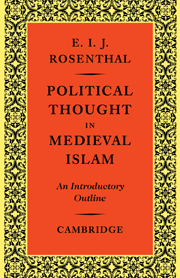Summary
Islam is the youngest of the great world religions. Although Arabia is its cradle and its inspiration, it owes in its theology a good deal to Judaism and Christianity, and its way of life centred in and regulated by an all-embracing law has many features in common with the Jewish way of life. Muhammad, its founder-prophet, grew to maturity in daily contact with Jews and Christians.
Yet, although Jewish and Christian elements can be found in Muhammad's teaching and in Muslim ritual and law, Islam is not simply the sum total of foreign elements. For Muhammad brought his own personality to bear upon what he saw and heard and argued about. In their transformation these foreign elements blended with Arabian features into something peculiarly its own, another child of the desert, of the Semitic genius for religion.
From its beginnings in the Arabian desert, Islam looked out on the world that surrounded the Arabs. Religious zeal increased the power of its arms and brought it victory over many lands and nations of different cultures and civilizations, of different faiths and customs. It has always been willing to accept ideas and institutions from those it vanquished. But in acceptance it has adapted and transformed its inheritance. Not always able to work the various strands into a harmonious whole, Islam has never yet lost its identity, even if instead of fusion and synthesis there resulted only fruitful and peaceful co-existence.
- Type
- Chapter
- Information
- Political Thought in Medieval IslamAn Introductory Outline, pp. 1 - 10Publisher: Cambridge University PressPrint publication year: 1958



